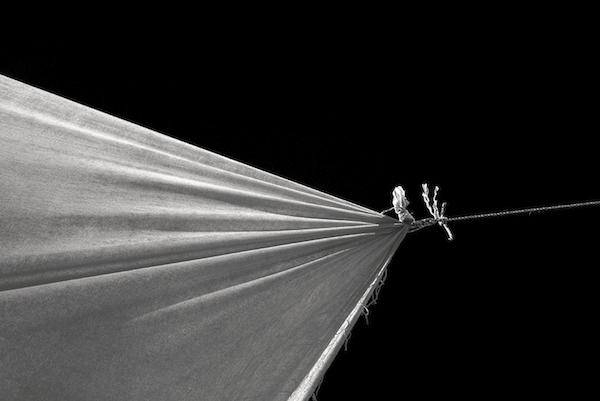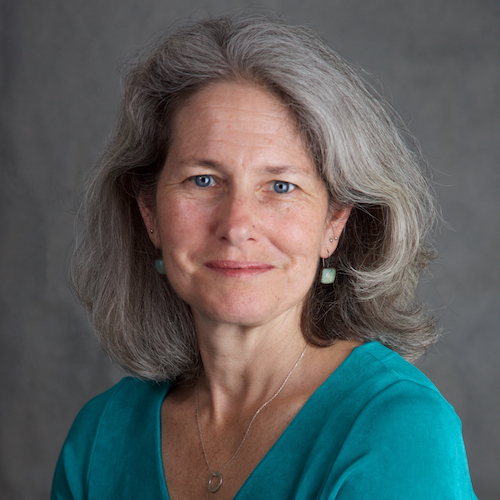Theme Essay by Rebecca Steinitz
For H.P.

My father-in-law was dying, and I couldn’t read.
For weeks last winter, I barely glanced at the newspapers piled up on the dining room table. I opened tabs for articles and essays, then eventually closed them. My Twitter feed went unchecked. I put New Yorkers in my bag when we headed to doctor’s appointments and rarely looked at them. One day, I bought the New York Times on the way to the hospital, and it stayed folded until we threw it out the day we left.
I got no farther with books. I started reading Kate Atkinson’s A God in Ruins on New Year’s Day, when my father-in-law was in the midst of more tests than I could name: blood, urine, X-ray, CAT scan, biopsy, coordination, strength, the one where you count backward from a hundred by seven. I’m still on page 113. From the library, I borrowed one of Elin Hilderbrand’s upscale Nantucket romances, my go-to escape reading. I couldn’t get past the first chapter.
My father-in-law was a philosopher. He was always reading: essays, articles, books; philosophy, science, religion, politics; newspapers, magazines, journals; emails from colleagues, friends, strangers. When a doctor asked about his hobbies, he came up with cooking and reading novels in foreign languages. Waiting for his first oncologist appointment, he read a Science article about gravitational waves. Waiting for his PET scan, he read the Times Literary Supplement, starting at the front as always, though this time he never made it to the back.
Then he stopped reading. His editor offered to come read to him; he shook his head no. His oldest friend emailed a funny story about Gödel and Einstein for us to read to him; I printed it, and it sat on the kitchen table until we threw it out, too. For a few days, I read him his emails, and then they didn’t matter anymore.
Not reading was one of many signs that my father-in-law was dying, along with not walking, not eating, and, frequently and agonizingly, not being able to talk. But I wasn’t dying. And yet, I wasn’t reading, either. And if I—a former English professor, a book reviewer, a writer, a person who doesn’t leave the house without a book, who read every page of Salman Rushdie’s Shame twice on a hiking trip because I was terrified of getting to the end and having nothing to read—if I wasn’t reading, who was I?
Except I was reading, I just didn’t realize it at the time. As my father-in-law went from perfectly fine to drastically unwell over the course of two months, as he underwent those tests, was diagnosed with mesothelioma (a virulent form of lung cancer) that metastasized two weeks later, and died three weeks after that, I kept reviewing books—Women in Dark Times by Jacqueline Rose, The Civil Wars of Julia Ward Howe by Elaine Showalter, All the Single Ladies by Rebecca Traister—in the wee hours of the morning, for deadlines I clung to, as if they were proof I was still alive.
I thought of it as work, not reading, but there was lots of other work I didn’t do. I had a deadline for a review I wanted to write of several novels—novels I wanted to read—but I stared at the stack on my desk every day and couldn’t open them, couldn’t even pick them up. Eventually, I told my editor I couldn’t write the review.
Then books started arriving, nonfiction books that were strangely apropos, as if I’d known what I would need to read in a future that arrived more quickly than we ever could have imagined. It turned out that I could read, I just couldn’t read fiction, the mainstay of my reading life.
As my father-in-law entered his last days, novelist Ellis Avery’s self-published essay collection, The Family Tooth, arrived in the mail, ordered from Etsy at some earlier point. Avery’s “cancer story sandwiched inside a grief-and-food memoir” had all the elements of my reality in completely different proportions. My reality was a universally lethal cancer that came on so quickly it couldn’t be treated, our imminent grief for the kindest man we knew, the food he amazed us by continuing to devour as he lost his ability to do much else, until he couldn’t do that, either. Hers was a rare cancer with bad odds that she compulsively researched, treated, and overcame; ambivalent painful grief for a complicated, often cruel mother; a bare-bones diet adopted to stave off crippling arthritis. Somewhere in the nexus of overlap and difference, the specific and compelling detail of Avery’s true story enabled me to read a book for which I didn’t have a deadline.
Two days after my father-in-law died, I received a pick-up notice from the library for a book I didn’t remember requesting: Katie Roiphe’s The Violet Hour: Great Writers at the End, another essay collection, this one about death in the works and lives of half a dozen writers. The book was perverse and essential. Then it became uncanny.
Like Freud, my father-in-law approached the end with peace and resolution in the early hours of the morning. When Roiphe describes his daughter Anna’s reaction to his death—“He was so much himself to the last minute that Anna would feel as if he were just off on one of his journeys, with her keeping things in order until he came back”—she named exactly what I felt.
But if Freud’s experience could mirror many, John Updike’s directly reflected my father-in-law’s. Updike, too, had a worrisome cough that wouldn’t go away, leaving him stuck in an “empty anxious time” (I thought of my vibrant, ever-active father-in-law unable to do anything but worry and the chores of daily life). The handwriting of both men became cramped and even more unreadable than it had been. Then Updike had a CAT scan, receiving a diagnosis of dire lung cancer.
There were differences: Updike kept writing poetry, and my father-in-law stopped writing philosophy; Updike lasted a few more weeks from diagnosis to death and died in hospice rather than at home. Still, his story triangulated my father-in-law’s, affirming their ubiquity and singularity, anchoring me in our reality.
I initially thought I couldn’t read fiction because of its cognitive complexity. It demanded that I keep the elements and language of a fully imagined system straight in my head, when the elements and language of my own life were already jumbled and blurred beyond my imagining. I called my children by each other’s names, missed appointments, left my keys in the running car, forgot to eat, stumbled over my words. For weeks, I couldn’t pronounce the word mesothelioma. If I couldn’t keep up with the elements and language of my own system, how could I manage a system made up by someone else?
But perhaps it was also that I was confronting the absolute real, the end of the story writ large and unstoppable, the final device of narrative, which in life is anything but a device. In such circumstances, some need the escape that fiction offers, especially when fantasy and imagination are working overtime to prevent the inevitable. But for me, fiction, even realistic fiction, the unreal real, was too unreal for this real moment. I knew my father-in-law was going to die. Artifice could save neither him nor us.
For those of us who traffic in sophisticated literary understanding, the immediate confrontation with life and death returns us to basics: the belief that there really are facts, that they are different from fictions, that stories of real life and real lives can inform our own, that reading for identification—or disidentification—can provide solace and pleasure, wherever we find it (both John Updike and Susan Sontag were reading The Death of Ivan Ilyich in their last days).
But there’s one more reason I may have abjured fiction. I finished revising my first novel during the weeks my father-in-law was falling ill, though none of us had yet realized it. The day I took him to the emergency room, which led to his only hospital stay and the news that his cancer had metastasized, I was drafting a query letter to agents.
My novel begins with the sudden death of a famous professor and the responses of his two sons and two daughters. My father-in-law was a famous professor with two sons and two daughters, although hard as it is to believe, I had never realized the parallel. My novel has nothing to do with my father-in-law or his children, but in one horrifying moment, a week or two before he died, I was seized with the fear that I had foreseen his death, even that my novel had killed him. I knew it wasn’t true, but in the days after he died, I turned to my novel to remember how to behave, even if its scenes of death, funeral, and mourning had come only from my imagination.
Perhaps I turned away from reading fiction then, because it is too powerful, as well as not powerful enough.
Publishing Information
- The Family Tooth by Ellis Avery (Etsy’s Seventeen Reasons, 2015).
- The Violet Hour: Great Writers at the End by Katie Roiphe (Dial Press, 2016).
Art Information
- "Taut, No. 1" (Elegy to 18 Dead, Beit Hanoun, Jerusalem, 2006) © Saïd Nuseibeh; used by permission.
 Rebecca Steinitz is a writer, editor, and literacy consultant in urban schools. She is the author of Time, Space, and Gender in the Nineteenth-Century British Novel and writes regularly for the Boston Globe, Cognoscenti, and various other print and online publications.
Rebecca Steinitz is a writer, editor, and literacy consultant in urban schools. She is the author of Time, Space, and Gender in the Nineteenth-Century British Novel and writes regularly for the Boston Globe, Cognoscenti, and various other print and online publications.
Her father-in-law passed away on March 13, 2016, and this is what she now says about reading and fiction:
The night my father-in-law died, we read the tweets of strangers who cared about him. We read all the obituaries, even the snide ones and the ones we had to paste into Google Translate. I kept reading about death for weeks: Elizabeth Alexander on her husband in The Light of the World; Paul Kalanithi on his own terminal lung cancer in When Breath Becomes Air; Patti Smith’s M Train, written decades after the death of her husband, suffused with his absence and presence. Then I moved away from death but stuck with nonfiction—Jill Lepore’s The Secret History of Wonder Woman and Daniel James Brown’s wonderful The Boys in the Boat. I finally got back to fiction last summer, voraciously, as we emerged from the immediacy of our grief. But there are still days when I can’t read and others when I cry for hours.
